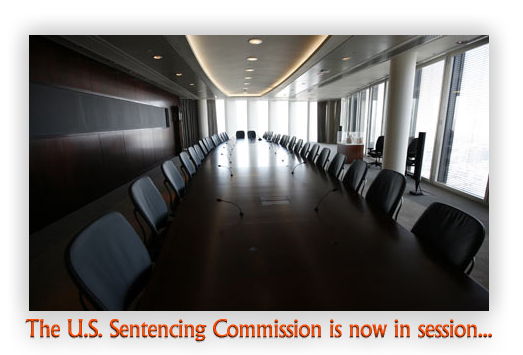We post news and comment on federal criminal justice issues, focused primarily on trial and post-conviction matters, legislative initiatives, and sentencing issues.

A LARGELY UGLY COMPASSIONATE RELEASE DECISION FROM THE THIRD CIRCUIT
 The 3rd Circuit last week joined eight other federal circuits in holding that an inmate-filed compassionate release motion is not limited by the Sentencing Guidelines § 1B1.13 policy statement. That was the good news, the only good news.
The 3rd Circuit last week joined eight other federal circuits in holding that an inmate-filed compassionate release motion is not limited by the Sentencing Guidelines § 1B1.13 policy statement. That was the good news, the only good news.
Eric Andrews is serving a 312-year sentence for a string of armed robberies, with almost all of that time due to stacked 18 USC § 924(c) convictions. If he had been sentenced after passage of the First Step Act, his § 924(c) sentences would have amounted to 91 years, still impressive but possibly a survivable sentence. But because the First Step changes were not retroactive, Rick’s only course was to file a compassionate release motion under 18 USC § 3582(c)(1)(A)(i) arguing that his excessive sentence length and the First Step Act changes were the “extraordinary and compelling reasons” supporting grant of the motion.
The district court denied Rick, and last week, the 3rd Circuit agreed.
The appeals court held that “the duration of a lawfully imposed sentence does not create an extraordinary or compelling circumstance… Considering the length of a statutorily mandated sentence as a reason for modifying a sentence would infringe on Congress’s authority to set penalties.”
 Likewise, the 3rd ruled, a nonretroactive change to mandatory minimums “cannot be a basis for compassionate release. In passing the First Step Act, Congress specifically decided that the changes to the 924(c) mandatory minimums would not apply to people who had already been sentenced.” Applying rules of statutory construction to the First Step Act, the Circuit said, “we will not construe Congress’s nonretroactivity directive as simultaneously creating an extraordinary and compelling reason for early release. Such an interpretation would sow conflict within the statute… We join the 6th and 7th Circuits in reaching this conclusion.”
Likewise, the 3rd ruled, a nonretroactive change to mandatory minimums “cannot be a basis for compassionate release. In passing the First Step Act, Congress specifically decided that the changes to the 924(c) mandatory minimums would not apply to people who had already been sentenced.” Applying rules of statutory construction to the First Step Act, the Circuit said, “we will not construe Congress’s nonretroactivity directive as simultaneously creating an extraordinary and compelling reason for early release. Such an interpretation would sow conflict within the statute… We join the 6th and 7th Circuits in reaching this conclusion.”
Ohio State University law professor Doug Berman, writing in his Sentencing Law and Policy blog, makes a telling point:
The very first sentence of the Andrews ruling has a Kafka-esque “only in America” quality to it: “Eric Andrews is serving a 312-year sentence for committing a series of armed robberies when he was nineteen.” That a person at age 19 can get a 312-year sentence for a series of robberies strikes me as quite extraordinary and quite compelling, but the district court did not see matters that way. Specifically, as described by the panel opinion, the district court decided that “the duration of Andrews’s sentence and the nonretroactive changes to mandatory minimums could not be extraordinary and compelling as a matter of law.” Of course, there is no statutory text enacted by Congress that sets forth this “as a matter of law.” But the Third Circuit panel here blesses the extra-textual notion that courts can and should invent some new categorical exclusions “as a matter of law” regarding what might qualify as extraordinary and compelling.
 The Second, Fourth, Fifth, Ninth and Tenth Circuits have held the contrary to this opinion, which perhaps puts some wind in Thomas Bryant’s pending petition to the Supreme Court for review of the 11th Circuit’s denial of his compassionate release motion. That petition is ripe for decision at the end of this month at the Supreme Court’s “long conference.” Of course, a reconstituted Sentencing Commission could solve this circuit split by rewriting USSG § 1B1.13, but that would require that the Sentencing Commission first be repopulated with new members. President Biden has thus far shown no more interest than did his predecessor in appointing new members. By December, the Commission will have been without a quorum for three years.
The Second, Fourth, Fifth, Ninth and Tenth Circuits have held the contrary to this opinion, which perhaps puts some wind in Thomas Bryant’s pending petition to the Supreme Court for review of the 11th Circuit’s denial of his compassionate release motion. That petition is ripe for decision at the end of this month at the Supreme Court’s “long conference.” Of course, a reconstituted Sentencing Commission could solve this circuit split by rewriting USSG § 1B1.13, but that would require that the Sentencing Commission first be repopulated with new members. President Biden has thus far shown no more interest than did his predecessor in appointing new members. By December, the Commission will have been without a quorum for three years.
United States v. Andrews, Case No 20-2768, 2021 US App LEXIS 26089 (3d Cir. August 30, 2021)
Sentencing Law and Policy, Third Circuit invents some extra-textual limits on what might permit a sentence reduction under 3582(c)(1)(A) (August 30, 2021)
– Thomas L. Root

